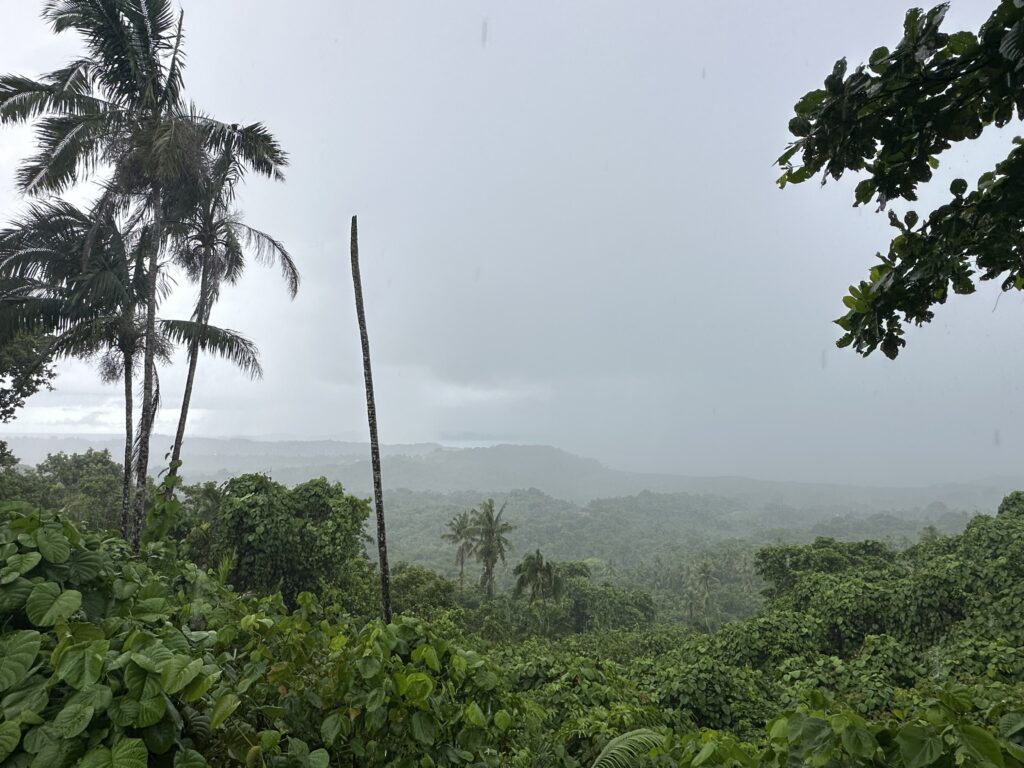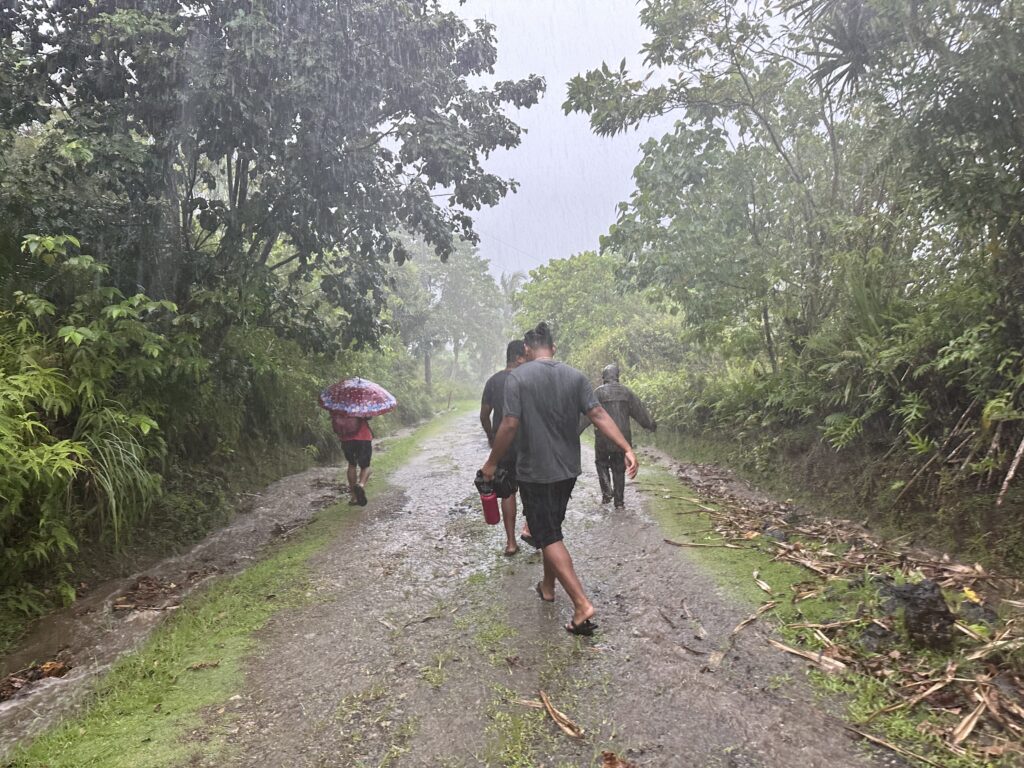We started our day heading out to the state of Ngchesar. There was an area where dead trees had been observed and our task was to survey and try to determine what the cause of this was. We split into groups and set off through the tall bush and grass to different areas to make our observations and hypotheses.

We observed lichen, burrow holes, evidence of past fires, and erosion. We came back to the bus full of excitement to share our findings with our classmates.

Next, we headed north to Ngardmau to the bauxite mines and had lunch before our next project. The bauxite mines were historically used by the Japanese up until the end of WWII. The result of this was that the soil was left degraded and generally unproductive. The Ebiil Society and the state of Ngardmau are undertaking a project to plant native trees that will reestablish vegetation to restore the site.
After an introduction to the different types of native trees and a planting demonstration, we set out to work. We planted 192 trees, with coconut husks around the base of the tree for protection, and then placed palm fronds between the rows to prevent erosion.

We then took samples of soil from the site we planted at today to compare to soil samples taken from a site previously planted in 2020. The sample from today’s site will provide a controlled baseline to detect if there is any change in the pH in the site from 2020. The hope is that the plants will help decrease the amount of acidity in the soil.

Piling back into the bus after a hard day’s work, we headed to Todai Light House, not far from the Ebiil Society. This site would give us a great view of a watershed above the taro fields. It began to downpour while we were there and according to Scott “You can’t have a watershed without water!”

We walked around the area to look at the site where the remnants of the lighthouse are and the group bonded while hiding away from the rain in a nearby picnic hut.

While most took the bus back to the Ebiil Society, some of us decided to take a walk in the rain, making observations about how runoff from heavy rain can affect the ecosystem. Returning to a flooded home, we set to work rescuing adrift flip flops and fishing poles. After drying off, we relaxed for the evening of our rainy day and then had some delicious food for dinner.

After dinner, we all gathered in the learning center to listen to two local Palauans, Tino and Anne Marie, speak to us. With the help of Cindy translating Palauan to English and vice versa, we learned about their expertise in the fields of fisheries and taro cultivation. They told us their backgrounds and answered our questions.

Today’s blog was written by Alanna, KB, and Alix

